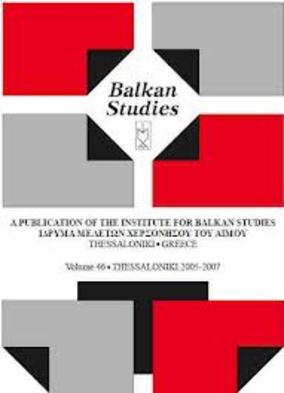Forced migration, repatriation, exodus : The case of Ganos-Chora and myriophyto-peristasis,Orthodox communities in eastern Thrace
Part of : Balkan studies : biannual publication of the Institute for Balkan Studies ; Vol.35, No.1, 1994, pages 16-45
Issue:
Pages:
16-45
Section Title:
Articles
Author:
Abstract:
The object of this essay is to investigate the demographic changes inEastern Thrace, and in particular in the two kazas Myriophyto and Peristasis,between 1911 and 1920. Using analytical, statistical sources—hitherto unpublished—it traces the fluctuations in the ethnological composition broughtabout by successive waves of population displacements: forced migrations*deportation, repatriation, exodus.Specifically, in the first part it discusses the problems created by interpretationsof the statistics which have been examined to date by other researchersand, in view of the new sources, attempts to throw some light on thequestion of the size of the Greek communities in this region before the BalkanWars, and establishes that the Greek component in these two kazas in fact constituted around 90% of the total population in 1911-12. Subsequently, it examines the emigration of a considerable number ofGreeks, in flight from the persecutions instigated by the Young Turks (191 ΒΙΟ15) and the occupation of their lands by Muslim refugees, a fact whichaltered the ethnological balance. It also examines the problems relating totheir repatriation, scheduled by the Greek government when Eastern Thracecame under Greek control. It can be seen that less than half of those whoemigrated managed to return. In 1920, two years before their exodus, in accordancewith the Convention for the Exchange of Populations betweenGreece and Turkey, the Greek population in the two kazas had been substantiallyreduced to around 80% of the total population.
Subject:
Subject (LC):
Notes:
The following essay is based on a paper presented at the Symposium “Aspects of theAsia Minor Question. Historical Approach and Implications”, held at the Aristotle Universityof Thessaloniki, Department of Modem and Contemporary History and Folklore, onthe 16th-17th October 1992. It draws upon unpublished archival material from both theGeneral State Archives and the A. A. Pallis Archive. The Greek text is to be included in theProceedings of the Symposium.




